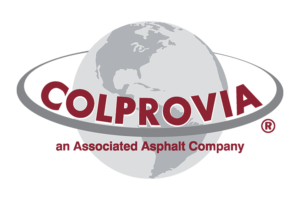Discover Why Leading Airports Choose Our Fuel-Resistant Asphalt Binder
Join the ranks of esteemed airports like Boston Logan International Airport, LaGuardia Airport, U.S. Air Force Hulburt Field, and more than 17 others who have made the smart choice for their paving needs.
Why Choose Fuel-Resistant Asphalt Binder?
Fuels, derived from crude oils, can wreak havoc on traditional asphalt surfaces. They act as solvents, leading to softening when spills occur. Combined with the heavy traffic stress experienced by Hot Mix Asphalt (HMA) layers, especially in high-temperature conditions, this can result in rutting and significantly reduce the asphalt’s service life, necessitating costly replacements and repairs.


The Solution: A Fuel-Resistant, Polymer-Modified Asphalt
To address these challenges, a fuel-resistant, polymer-modified asphalt was developed. This innovative solution not only withstands the corrosive effects of fuel and hydraulic fluid spills but also provides enhanced resistance against load-related and environmental surface distress.
The key to this technology is a specially formulated asphalt binder, designed to deliver robust resistance against fuels and hydraulic fluids, permanent deformation, fatigue, and thermal cracking.
Rigorous Testing by Rutgers Center for Advanced Infrastructure and Transportation
The Rutgers Center for Advanced Infrastructure and Transportation conducted an extensive battery of laboratory tests, comparing the characteristics of P-401 and our advanced P-404 binder.
Fuel Resistance (specimens submerged in jet fuel for 24 hours):
- – Neat asphalt HMA mixtures experienced a weight loss exceeding 10 percent.
- – Modified PG 76-22 HMA mixtures showed around a 5 percent weight loss.
- – Our remarkable fuel-resistant StellarFlex FR(R) HMA mixture specimens demonstrated less than a 0.5 percent weight loss.
Dynamic Modulus:
- – P-404 asphalt mixtures exhibited superior stiffness properties compared to P-401.
- – In short-term aged conditions, P-404 displayed higher modulus at high temperatures and lower modulus at low temperatures.
- – After simulating roughly 10 years of service life, P-404 resulted in lower age hardening than P-401.
Permanent Deformation:
- – Using the AMPT Repeated Load Flow Number test, P-404 asphalt mixtures proved far superior in rutting resistance.
Fatigue Cracking Performance (three distinct test methods: Overlay Tester, SCB Flexibility Index, and Flexural Beam Fatigue):
- – In all three methods, P-404 asphalt mixtures demonstrated superior fatigue resistance when compared to P-401, both in short-term and long-term aged conditions.
Eager to Learn More?
Schedule a Professional Development Hour (PDH) seminar or set up a consultation to gain deeper insights into our groundbreaking fuel-resistant asphalt binder. Fill out the form, and we’ll get back to you promptly.




